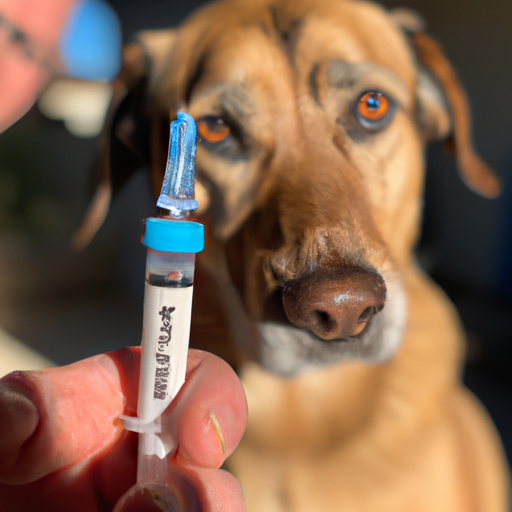As a responsible dog owner, you’re always looking out for the health and well-being of your furry friend. One of the critical aspects of dog health is vaccinations. Among the many vaccines your dog may need, the CIV (Canine Influenza Virus) vaccine is one that often prompts questions. Let’s dive into the details and unravel what this vaccine is, why it’s necessary, and how it works.
Table of Contents
- Understanding Canine Influenza Virus
- The Importance of CIV Vaccine
- How Does the CIV Vaccine Work?
- Safety and Side Effects
- Frequently Asked Questions
Key Takeaways
- The CIV vaccine is crucial in protecting dogs from the potentially fatal canine influenza virus.
- The vaccine works by stimulating your dog’s immune system to fight off the virus.
- While side effects are generally mild and temporary, it’s essential to monitor your dog after vaccination.
Understanding Canine Influenza Virus
The canine influenza virus (CIV), also known as dog flu, is a highly contagious respiratory disease in dogs. There are two primary strains of the virus, H3N8 and H3N2, both of which the CIV vaccine can protect against. The symptoms of canine influenza resemble those of kennel cough and can range from mild to severe. This comprehensive guide on canine influenza from the American Veterinary Medical Association can help you understand the disease better.
You might wonder if your dog is at risk. Well, dog flu spreads quickly among dogs in close contact, such as in kennels, dog parks, and grooming salons. If your dog frequently interacts with other dogs, the risk of catching canine influenza is high. This is where the CIV vaccine comes in handy.
The Importance of CIV Vaccine
The CIV vaccine is designed to protect your dog from both strains of the canine influenza virus. While it may not completely prevent the disease, it can significantly reduce the severity of symptoms and the duration of the illness.
In the absence of vaccination, canine influenza can lead to severe complications, including pneumonia and, in rare cases, death. Moreover, canine influenza is a zoonotic disease, meaning it can be transmitted from dogs to cats. By vaccinating your dog, you’re also safeguarding the health of other pets in your home.
You can learn more about the importance of dog vaccinations in general in this informative article on Onetopdog.
How Does the CIV Vaccine Work?
The CIV vaccine is an inactivated vaccine, meaning it contains a killed version of the virus. When your dog receives the vaccine, it stimulates their immune system to produce antibodies against the virus. If your dog is later exposed to the virus, these antibodies will help their immune system fight off the infection.
It’s important to note that the immunity provided by the CIV vaccine doesn’t develop immediately. It typically takes two to four weeks for the immune response to fully develop. Hence, it’s crucial to plan your dog’s vaccination schedule in advance, preferably before you plan to board them or take them to a dog park. More tips on planning your dog’s vaccination schedule can be found here.
Safety and Side Effects
Like any other vaccine, the CIV vaccine can cause some side effects. However, these are generally mild and temporary. They may include pain or swelling at the injection site, mild fever, and reduced appetite or activity.
Serious side effects are rare but can occur. If you notice any unusual symptoms in your dog after vaccination, it’s essential to contact your vet immediately. Onetopdog offers a detailed guide on recognizing and handling vaccine reactions in dogs.
Frequently Asked Questions
1. How often should my dog receive the CIV vaccine?
The initial CIV vaccine is given in two doses, 2-4 weeks apart. After that, it’s usually given annually. However, the exact vaccination schedule can vary based on your dog’s risk factors and lifestyle.
2. Can the CIV vaccine cause my dog to get the flu?
No, the CIV vaccine cannot cause the flu. It contains a killed version of the virus, which can’t cause the disease.
3. Is the CIV vaccine mandatory for all dogs?
The CIV vaccine is considered a “lifestyle” vaccine, meaning it’s recommended for dogs at high risk of exposure to the virus. Your vet can help you determine whether this vaccine is necessary for your dog.
In conclusion, the CIV vaccine is a crucial tool in protecting your dog from canine influenza. As a caring pet owner, understanding this vaccine and its benefits can help you make informed decisions about your dog’s health.



